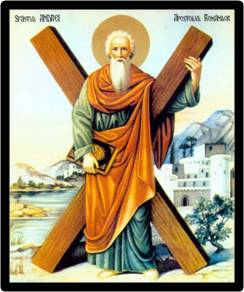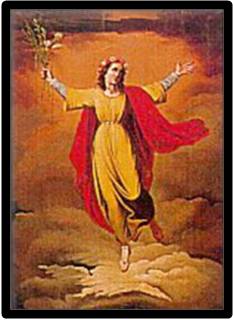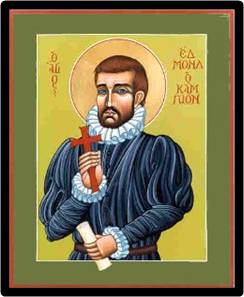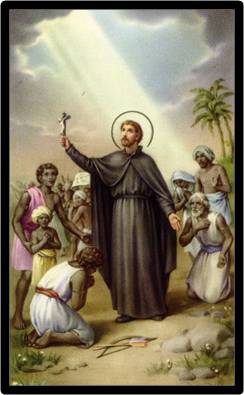NOVEMBER 30 - ST. ANDREW THE APOSTLE

St. Andrew was born at Bethsaida in Israel. He and his brother, Simon Peter, grew up to become fishermen. And when Andrew heard the great St. John the Baptist preach, he became his disciple.
When Jesus came to be baptized, John pointed to Jesus and said, “Behold the Lamb of God,” Andrew understood that Jesus was greater. At once he left John and followed Jesus.
Jesus knew that Andrew was walking behind him and turning back, asked why he was being followed. Andrew said that he would like to know where Jesus lived. Jesus warmly invited him to, “Come and see.”
Andrew had been with Jesus only a short while when he realized that this was truly the Messiah and he became the first disciple of Christ. Then Andrew brought his brother Simon (St. Peter) to Jesus. The Lord welcomed him as his disciple too.
At first the two brothers continued their fishing trade and family affairs. But soon the Lord called them to stay with him all the time. He promised to make them fishers of men, and this time they left their nets for good. St. Andrew went through life leading people to Jesus, both before and after Jesus died.
After Jesus ascended into heaven, St. Andrew preached the Gospel in Greece. There, he was put to death on a saltire cross (x shaped), to which he was tied, not nailed.
He lived two days in that state of suffering but still found enough strength to preach to the people who gathered around their beloved apostle.
Hundreds of years later, when the king of Scotland faced a large invading army, he prayed for guidance. A white cloud in the form of a saltire cross floated in the blue sky above him and he won the battle. Saint Andrew was named the patron saint of Scotland and the Saltire became the national flag of Scotland.
St. Andrew is also the patron saint of Russia.



